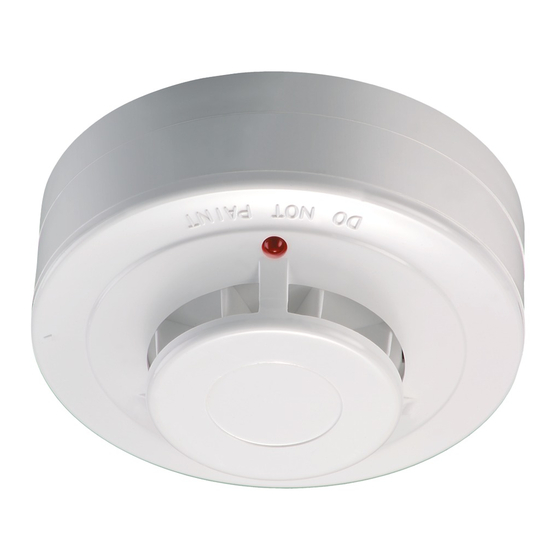Abus RM1100 Panduan Instalasi - Halaman 6
Jelajahi secara online atau unduh pdf Panduan Instalasi untuk Sensor Keamanan Abus RM1100. Abus RM1100 16 halaman. Thermo-differential detector

Preface
Dear Customer,
Thank you for purchasing this thermo-differential detector. You made
the right decision in choosing this state-of-the-art technology, which
complies with the current standards of domestic and European
regulations. The CE has been proven and all related certifications are
available from the manufacturer upon request. To maintain this status
and to guarantee safe operation, it is your obligation to observe these
operating instructions.
Notes
The thermo-differential detector is used together with a burglar alarm
system or fire hazard warning system. It is used in locations with high
dust pollution (garages, industrial buildings) or where thick smoke is
not expected in the event of a fire (such as highly flammable
materials).
The thermo-differential detector detects two criteria. It reacts to a
temperature above 57°C and a sudden temperature rise of 5°C within
three minutes.
Caution:
Thermo-differential detectors cannot be used to prevent fire. They are
used merely to react to specific fire characteristics. During installation,
make sure that the detector is placed in accordance with local fire
precaution regulations and recommendations.
This detector is designed for indoor use only.
To ensure perfect functioning of your thermo-differential detector,
please note the following:
•
Do not disassemble the detector.
•
Avoid anything that may prevent the flow of air to the
detector.
Following installation, check that all detectors in your fire alarm system
are working and repeat this check at least once a year.
Positioning
Make sure that the detector is at least 30 cm away from any walls.
Use thermo-differential detectors only in rooms where no high
temperatures are to be expected or where the temperature could
suddenly change by 4–5°C. These include heating furnace rooms,
bakeries, etc.
Installation
1.
Separate the detector from the base plate by pressing detector
and base plate together and unscrewing in an anticlockwise
direction.
2.
Installing the base plate
2.1. Using the screws and wall-plugs supplied, screw the base
plate to the wall or ceiling.
2.2. The detector needs four connections cables for installation.
Fig. 1 shows the wiring diagram, Fig. 2 the base plate.
The connection mark numbers are also shown inside the
base plate.
3.
Setting the relay to NO/NC
3.1. The standard setting of the detector is NO. To change the
detector setting to NC, do the following.
3.2. Remove the two screws on the rear of the detector (Fig. 3)
and then remove the cover plate.
5
